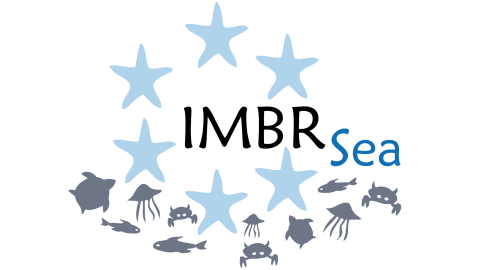
International Master in Marine Biological Resources (IMBRSea)
The International Master of Science in Marine Biological Resources (IMBRSea) is a joint master’s program organized by nine European universities in the field of marine sciences, supported by the European Marine Biological Resources Centre (EMBRC). The IMBRSea program is an Erasmus Mundus project that builds on the strengths of the previous International Master of Science in Marine Biodiversity and Conservation (EMBC+). It prepares students for the rapidly evolving blue bioeconomy and research into the sustainable use of marine biological resources.
Presentation
IMBRSea (International Master in Marine Biological Resources) is an Erasmus-Mundus master's program, within Erasmus+, co-organized in 2 years by nine renowned universities in the field of Marine Sciences:
- Ghent University (BE)
- Sorbonne University (FR)
- University of Algarve (PT)
- University of Oviedo (ES)
- Mayo Institute of Technology in Galway (IE)
- University of the Basque Country (ES)
- Polytechnic University of Marche (IT)
- University of Bergen (NO)
- The University of Western Brittany (UBO)
At the end of the course, a joint master's degree signed by all the partner universities is awarded.
Organization
The first semester is devoted to fundamental courses that will enable students to acquire the skills required to follow one of the program's five specialized courses. The first semester is organized into a choice between:
- Ghent University
- University of Algarve
- University of Oviedo
- The University of Western Brittany
- Sorbonne University
In the second and third semesters, students follow two thematic modules leading to one of five career paths:
- Marine food production
- Management of living marine resources
- Applied marine ecology and conservation (at Sorbonne University's Faculty of Science and Engineering)
- Marine environment health (at Sorbonne University's Faculty of Science and Engineering)
- Global ocean change (at Sorbonne University's Faculty of Science and Engineering)
Target audience and prerequisites
A bachelor's or master's degree in biology, ecology, environmental sciences, oceanography, marine sciences, geography, geology or other equivalent degree with a minimum of 180 credits.
Knowledge of English is considered a basic prerequisite. All students must provide proof of their language skills.
Scholarships are available for interested candidates, and awarded according to a criteria of excellence.
Contacts
Responsable du parcours
Lars STEMMANN
Responsable administratif
Hanna HERTWIG
